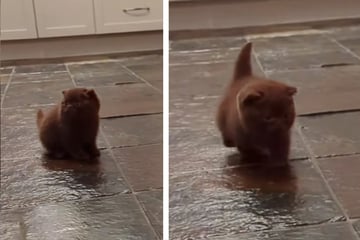Are tulips poisonous for cats?
If you want something colorful, tulips are ideal. But if you have a cat, you should avoid these cut flowers because tulips are poisonous to cats! TAG24 explains everything you need to know about this.
Why tulips can be dangerous for cats
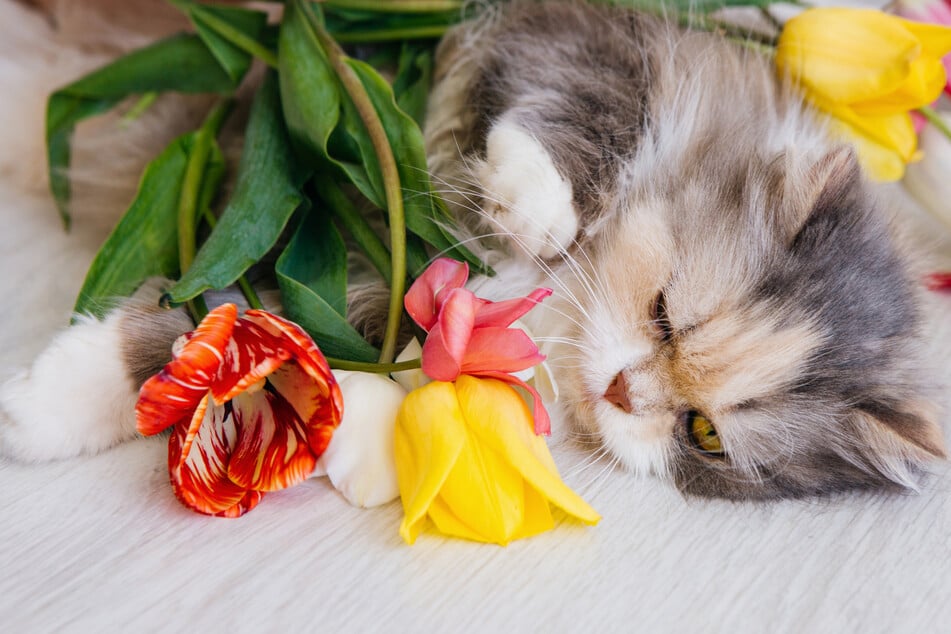
Tulips belong to the lily family and contain the toxic alkaloid compounds tulipalin A and tulipalin B, which are poisonous to cats and humans.
In relation to body weight, even a small amount of poison can be dangerous for cats and, in the worst case, lead to respiratory arrest.
The first symptoms of tulip poisoning in cats are vomiting, diarrhea, and increased salivation.
Consequently, cats should be kept away from tulips. If you have tulips in your house or garden, you should make sure that a cat does not have access to them.
What is poisonous to cats about the tulip?
All parts of the tulip are poisonous to cats. Tulip bulbs are particularly dangerous because they contain the highest concentration of toxins. A cat should not eat or nibble on any part of the plant.
The water in the vase is also not suitable for cats because tulips also release their toxins into flower water.
Is it bad if cats smell tulips?
If a cat smells tulips, this is not dangerous at first. It only becomes a concern if it nibbles on tulips or eats parts of them.
As cats quickly switch from sniffing to tasting, it is advisable to always keep tulips out of their reach.
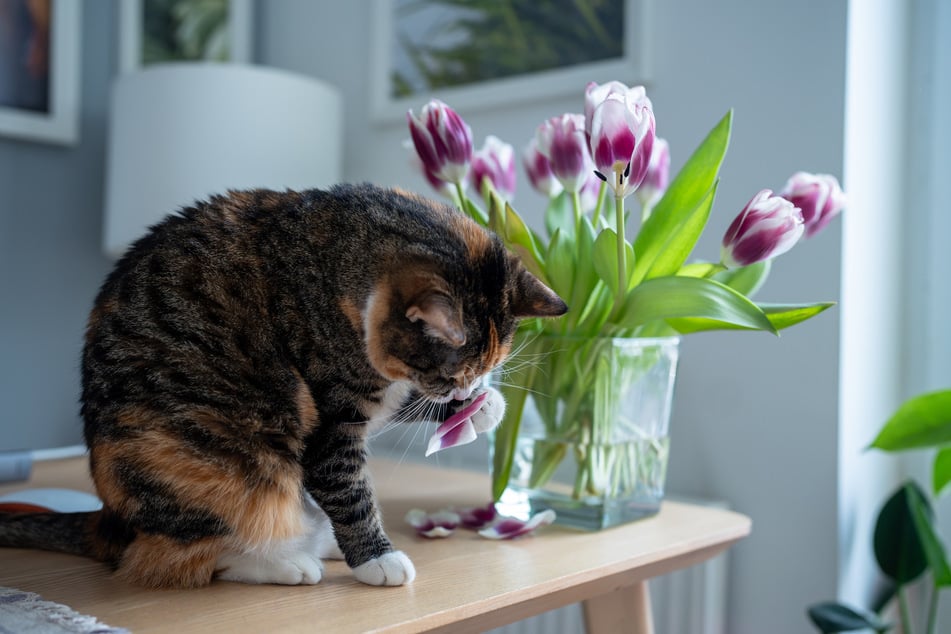
What do I do if my cat eats tulips?
If a cat has eaten tulips, you should contact a vet for advice. Ideally, you will be able to give precise details of how many and what type of tulips the cat has eaten.
If a house cat shows symptoms of poisoning such as increased salivation, diarrhea, and vomiting, you should contact the emergency veterinary service immediately.
Which cut flowers are not poisonous to cats?
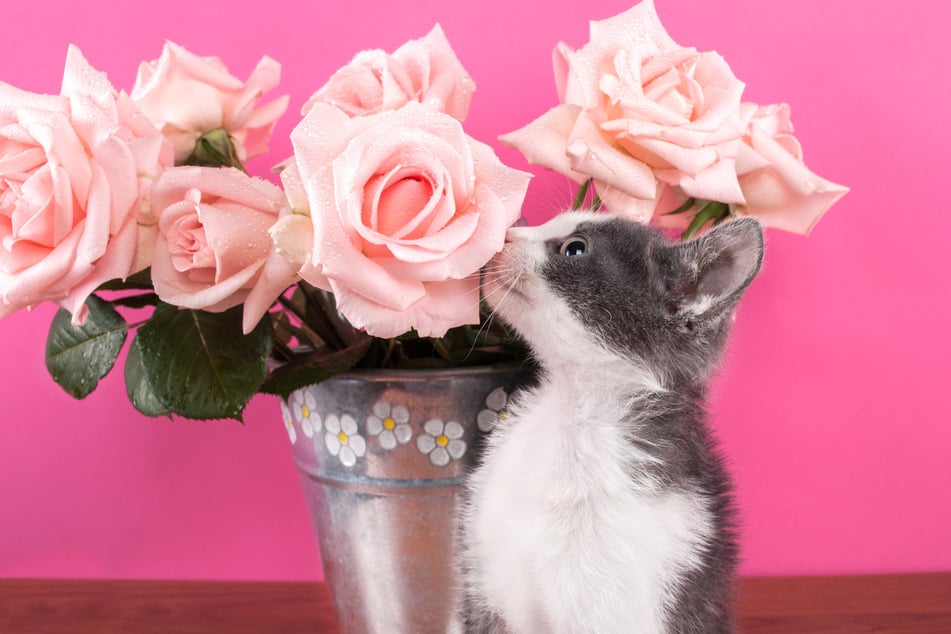
If you don't want to do without the splendor of flowers in your home, you should buy cut flowers that are not poisonous to cats.
Non-toxic cut flowers for cats:
- Roses (remove thorns)
- Gerberas
- Dahlias
- Daisies
- Snapdragons
- Lisianthus/prairie gentians
If you are unsure, you can seek advice from a florist. It is also advisable to keep cut flowers out of reach of cats.
If they like to nibble on plants, you can offer cat grass as an alternative.
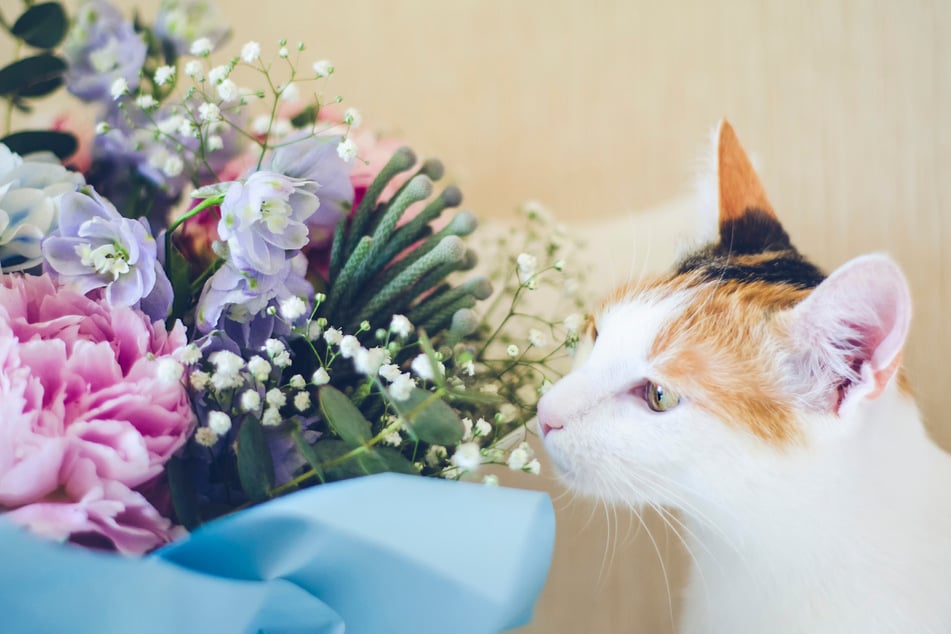
If you have a cat household, you should avoid the tulip bouquet and choose non-toxic alternatives.
If a cat has eaten tulips or drunk the flower water, it is likely in danger and should be examined by a vet immediately.
Cover photo: 123rf/golubovystock
